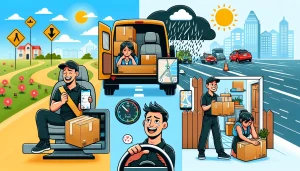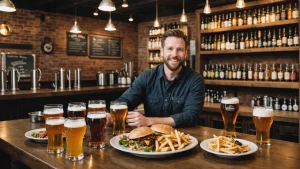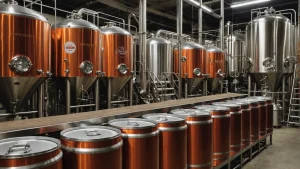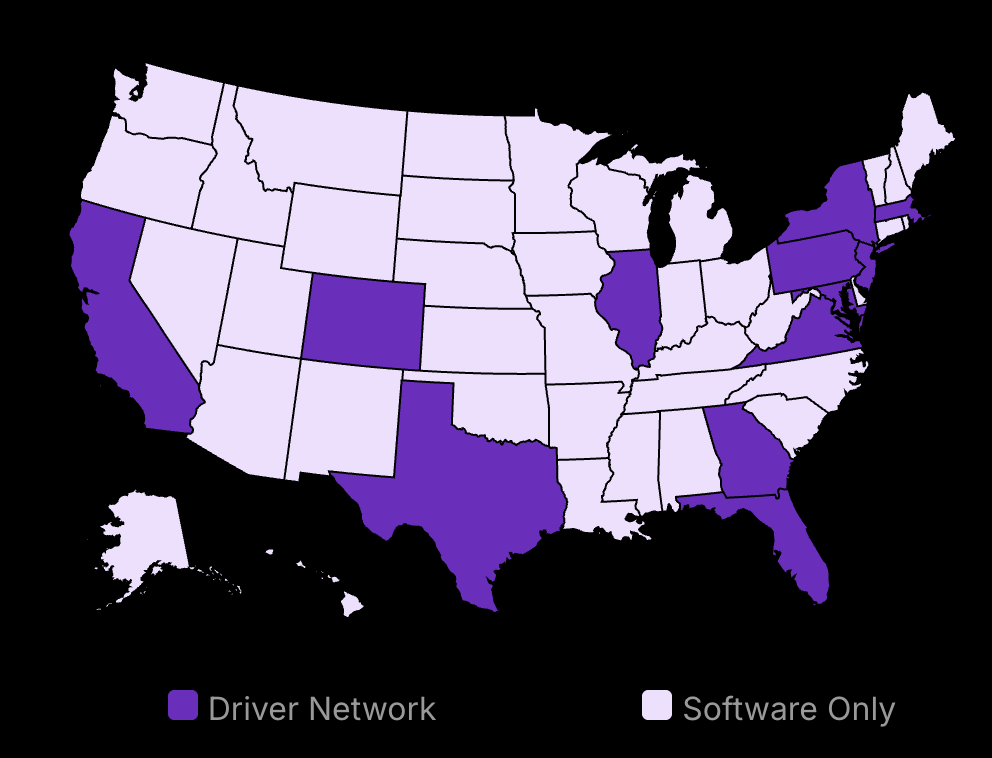We’re all hoping that things will go back to the way things were at the beginning of the year. Yet, it is becoming clearer that COVID will result in a new normal – primarily driven by consumer behavior.
The new normal comes with changes in buying behavior as well as unprecedented pressure on package delivery therefore need for reliable local delivery services. The change exists in both wholesale and consumer segments.
At Metrobi, we worked with several local businesses to start their online channels and to provide a reliable and scalable local delivery service for home and B2B deliveries(wholesale). With this article, we aimed to provide a comprehensive overview of our observations within the industry.
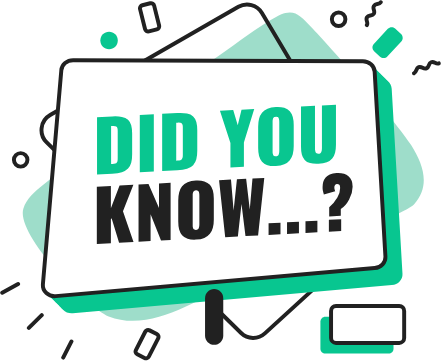
27% higher customer satisfaction
Professional delivery features:
- Real-time GPS tracking
- Automated ETA updates
- Delivery confirmation photos
- 27% higher delivery satisfaction
1. The new normal, driven by consumer behavior

Bulk buying behaviors
Before the COVID, Gen Z and millennial customers were accustomed to getting anything they need to be delivered to them within a day or two. The on-demand behavior reflected on their local buying behavior as well. Making short and frequent trips to buy products from their local stores. Or, in the case of prepared food, instant local delivery services gained popularity in the last few years.
It was, maybe, one of the very first times this segment of buyers experienced shortages. Even Amazon reported shortages, telling that it could take several weeks to get some products delivered. This made Gen Z and millennials to get used to bulk buying behavior as like their older generations who were already accustomed to it.
It is not only the shoppers who are bulk-buying but also the retailers. Retailers, like millennials, were used to getting their inventory on-demand therefore not investing in the excess inventory. This behavior changed with the COVID-19. Retailers also got to experience bulk inventory purchases while trying to keep their inventory as lean as possible.
This behavior, potentially, introduces the largest opportunities for local wholesalers, suppliers, and makers. Compared to large national manufacturers, local wholesalers and suppliers can help the retailers to meet the surge in demand due to their proximity therefore their logistical advantage. Yet, this creates a stress for their package delivery operations, increasing their need for a local delivery service. Traditionally, local wholesalers have always been like a warehousing-solution for local businesses.
Less frequent purchases
Although consumers are making bulk purchases, they are doing less frequent visits to the stores. Average trips to stores went from 2.3 times per week(before COVID) to once per week. As a result, spendings per hour in the store has increased by 49%. Consumers are buying more in less time because time in the store is counted, the health risk is present.
In-store and discovery experiences have also changed. Consumers are concentrated on value and essential products. The pre-pandemic wandering between the aisles to discover new products is not common anymore. The same applies to walking the streets to find out a place to dine. Consumers, now, pre-plan the places they would go and avoid doing frequent stops.
We’ve witnessed the same effect in local wholesale markets. Jacobson Floral, one of the largest flower hardware wholesalers in the North East region adapted to the change by leveraging Metrobi courier delivery service in Massachusetts. A good portion of Jacobson Flower customers(retailers) was used to visiting their location to personally pick up products every other day. With the pandemic, their willingness to visit a physical store decreased. Instead, Jacobson Floral is working with Metrobi local delivery service in Massachusetts. Metrobi enabled them to scale the B2B delivery without investing in vehicles and drivers.
It is expected that most habits will return to normal. Consumers will return to their pre-pandemic behavior of visiting stores, malls, and social gathering places. Yet, it is likely that some habits will be modified by new regulations and procedures in the way consumers shop and buy products and services.
2. Unprecedented pressure on package delivery

Consumers are adopting online channels. During the lockdown, online channels have helped to substitute part of the lost sales. This may eventually be insufficient to compensate for lost sales in physical outlets. However, one strategic advantage is to earn the loyalty of consumers for the long term and increase brand recognition. If planned correctly, investment in online sales could create a substantial long term revenue stream.
Nearly 90 percent of commerce used to take place in the physical world. But the pandemic changed that. One in five small businesses reported a temporary close down since the pandemic started. Many other local businesses moved online – local delivery services and pickups. Technology adoptions that were expected to take years happened in weeks.
A majority of e-commerce happened through Amazon’s and Walmart’s of the economy. Yet, we also witnessed people put their money where their mouths are. They became thoughtful of the entire journey of what they’re paying for – supporting the local community which is over and above the value of the goods. Therefore, #inthistogether was born. And, this created an awareness of local community(and, local businesses) whose long-term gains we’re yet to measure.
Many businesses had to get creative to take advantage of that sentiment. At Metrobi, we helped many new businesses to get started with local package delivery during the pandemic. BoardsByMo was founded by Mo Misra to deliver cheese boards for various personal events. Mo started the idea as a way to help feed frontline healthcare workers. Soon after, people asked if they could purchase products and BoardsByMo was born. Metrobi took charge of BoardsByMo’s local deliveries in Boston and enabled them to sell to a wider area reliably. Using a reliable local delivery service enabled BoardsByMo to focus on sales instead. And, they doubled their sales in a matter of weeks.
For a comparison of local delivery services for your business, read the difference between courier service, postal service, and in house delivery operations for businesses.
3. A cannibalization effect is also underway between local shops and large chains.

Industry reports show that local grocery shops are seeing a 26% increase compared to the previous year. Unfortunately, this is not the case for the restaurant and hospitality industry. Although large chains also witnessed a large demand, they also had the biggest stock problems.
Local stores, due to their connections to local suppliers and manufacturers, have been more resilient in terms of providing essential products during the crisis. The decline in the restaurant industry also helped them to connect with restaurant suppliers and fill their stocks.
A total return to normal will take time and the habits are here to stay. The emotional and psychological bonds that are created between local businesses and their customers are here to persist.
At Metrobi, we worked with several businesses and observed the formation of this bond. Dorchester Brewing Company, a local Boston brewery, demonstrated one of the best practices of bonding with their customers. A month after the lockdown, Dorchester Brewing Company started their online sales and used Metrobi local delivery service for package deliveries. Within a week, DBCo was fulfilling dozens of orders a day. Having a flexible local delivery service, they also started selling to venues(wholesale) and created partnerships. By combining wholesale B2B deliveries with consumer deliveries, package delivery costs went down and sales increased.
When they opened after the lockdown, the existing relationship with their customers made them have a head start. Many people visited their Dorchester location. DBCo walked out of the crisis with new wholesale partnerships, an e-commerce revenue stream, a robust local delivery service, and, more importantly, a tighter connection with their customers.
Proximity is bringing us closer and we may be entering an era of deconstruction of the large-enterprise retailer model that has prevailed until now.
To sum it up
We’ve witnesses, a major swing in consumer behavior and the dynamics of commerce. Lockdown, essential for the well-being of society, created changes in behavior that are here to stay in the medium term. Many local businesses saw this as an opportunity and created a community with their customers. Many started e-commerce offerings in partnership with local delivery services. These brands are well-positioned to win the war against large brands, especially within their geography.
The toolkit they all possessed was:
- A tighter connection with local customers
- Online sales: Not just for today but as a strategic medium-term investment
- Professional courier service: A reliable and scalable local delivery service to expand their reach
Further readings you might be interested:





